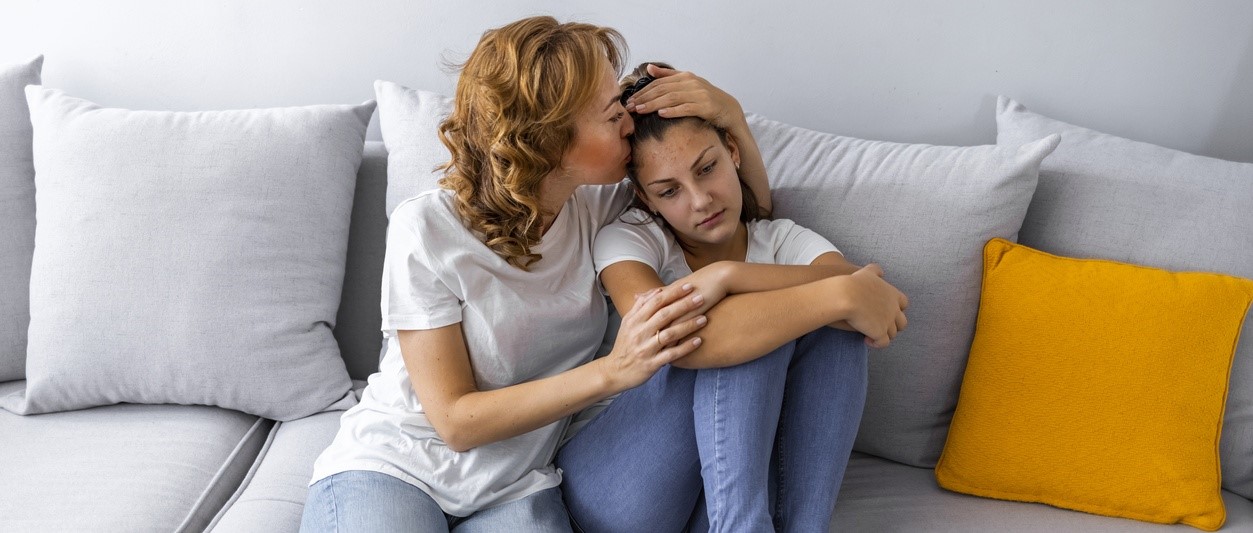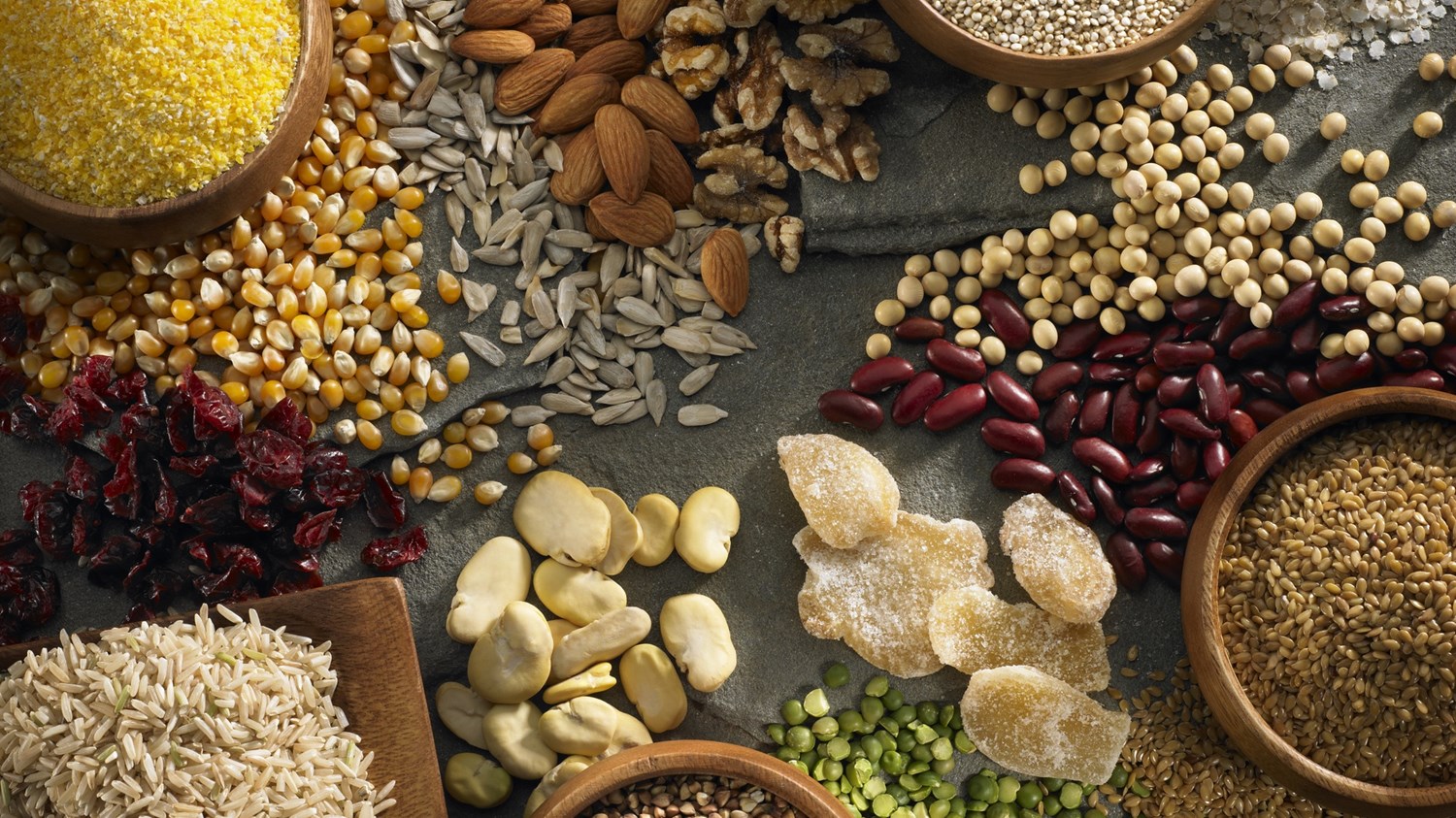
Crohn's disease in children: How to support your child
Peer reviewed by Dr Krishna Vakharia, MRCGPLast updated by Amberley DavisLast updated 17 May 2023
Meets Patient’s editorial guidelines
- DownloadDownload
- Share
- Language
- Discussion
- Audio Version
When your child has been diagnosed with Crohn's disease there is a lot to take in and it can feel overwhelming - it can take time for family life to adjust. Here, we explain how the condition might affect your child, and share tips and resources to help you and your child cope with the day-to-day challenges.
In this article:
Video picks for Bowel problems
Continue reading below
How Crohn's might affect your child
Crohn's disease is a long-term condition caused by inflammation in the gut, and so is a type of inflammatory bowel disease (IBD). This damages the digestive system and causes episodes of symptoms, known as flare-ups, but your child will likely also have long periods without symptoms, known as remission.
If your child has Crohn's, they may experience pain, diarrhoea, tiredness, and weight loss during a flare up, and the condition could also limit how tall they grow. But treatments that get Crohn's under control can significantly help ease symptoms and support normal growth.
The unpredictable ups and downs of the disease can be challenging, but this also means that there will be times when your child enjoys periods of remission, free from symptoms. They can lead fairly normal lives - going to school, playing with friends, and growing up to become happy and healthy adults.
Is Crohn's common in children?
Although more common in adults, Crohn's disease in children and teenagers account for 25% of cases1. The condition can develop at any age, but it's less common in very young children and babies.
Coming to terms with your child's diagnosis
Back to contentsIt's natural to feel worried about what having Crohn's disease could mean for your child. While there is no cure for Crohn's disease in children or adults, there are several treatments and therapies that can help ease their symptoms and keep Crohn's under control.
Louise Chamberlain discovered her son had Crohn's when he was 13. Now, she's studying nutrition to learn as much as she can about anti-inflammatory diets and gut-healing protocols:
"At diagnosis, I knew nothing about Crohn's disease. I quickly discovered that it's not well understood. I was frustrated when I kept hearing people say that diet doesn't matter - it made no sense to me. I've since discovered that there's huge amounts of new research around diet and IBD. My advice for other parents is to keep up to date with new research and treatments."
It's not always going to be easy, but remember that:
There's nothing you did or didn't do to cause this condition - Crohn's is thought to be linked to multiple factors outside of your control, including immune system function, environmental triggers, and genetic traits.
Certain times will be harder than others - it can be difficult if your child has a bad flare-up, but these come and go, and your child will also have times when symptoms aren't a bother.
There's rarely a single right answer - it's easy to feel at a loss and some treatments lead to side effects in certain people, but your child's IBD team of specialists will help you make treatment decisions and adjustments that are right for your child.
No cure doesn't mean no hope - treatments for Crohn's have improved a lot in the last 20 years, and new treatments continue to be developed.
You're not alone - there are other families facing the same challenges, as well as organisations that offer wellbeing support and plenty of helpful resources to help you manage the day-to-day challenges. You may find the list below a good place to start.
Helpful resources and emotional support services - for you and your child
Support from your child's IBD team of specialists
Your child's IBD team is made up of many specialists who cover all aspects of their medical needs. They may include dieticians, physicians, surgeons, IBD nurses, and psychologists. If you need emotional support, ask your team for more information, or you can find your local IBD nurse for help and support.
UK Crohn's disease emotional support
There are UK organisations set up to answer any questions you have and offer emotional support for both you and your child. For example, Crohn's & Colitis UK offers:
A helpline: 0300 222 5700
Email: helpline@crohnsandcolitis.org.uk
A live chat.
Crohn's disease wellbeing kits
Crohn's disease organisations also provide lots of supportive materials on Crohn's disease in children and wellbeing. For example, the Crohn's in Childhood Research Association (CICRA) provide a family pack emotional wellbeing kit for parents, young people, and siblings.
IBD management apps
IBD mobile apps can give you a useful Crohn's management and learning tool in your pocket. This may help you to monitor your child's wellbeing, or if you have a teenager with Crohn's, it might help them feel more in control of their condition. For example, the My IBD Care app allows you to track your day-to-day medications, mental and physical wellbeing, stress levels, and sleep.
Continue reading below
How to support a child with Crohn's
Back to contentsTalking to your child about Crohn's
Children with Crohn's disease often feel scared and angry after diagnosis. Establishing an open dialogue and encouraging your child to express their emotions can help them to adapt and may prevent their feelings coming out in negative ways, like directing anger at a sibling. CICRA's emotional wellbeing kit family pack provides practical tips on getting your child or teenager to open up3.
Some important things to remind your child:
Nothing they did or ate gave them Crohn's disease.
Most people living with Crohn's are happy and healthy more often than they are unwell.
There's nothing stopping them achieving their goals - show them celebrities, athletes, and other successful people who have Crohn's or another IBD - such as the pop singer Anastacia, former England rugby captain Lewis Moody, and Manchester United and Scotland footballer Darren Fletcher.
There'll likely be many aspects of Crohn's and treatment to discuss. Be as honest as possible - but try to find the positive. For example, it could be that you're explaining to your child the importance of taking their medication - describe how it will help them play their favourite sport.
Sharing resources with them
Talking is important, but you don't have to explain everything to your child yourself. Off load some of the burden by making use of resources that help young people understand Crohn's and make them feel less alone. For example:
Meet our Crohn's and Colitis cats - is an illustrated story that helps explain Crohn's to young children.
The Unstoppables: Young people - children and teenagers share their stories and advice.
Preparing them for bathroom accidents
Diarrhoea and urgent trips to the bathroom are common symptoms of Crohn's disease in children. While you won't always be able to prevent this, you can help your child stay prepared. Pack them a small bag of emergency supplies that they can discreetly take to school, activity clubs, sleepovers, and outings.
This emergency bag could include:
Toilet paper.
Wet wipes.
Spare underwear and clothes.
Disposable gloves to handle soiled clothes.
Large freezer bags to store the soiled clothes.
A mini air freshener.
Hand sanitiser.
Navigating their treatments
It's likely that your child will try more than one treatment method to get their condition under control.
Treatment options for Crohn's disease in children include:
Anti-inflammatory drugs.
Antibiotics.
Immunomodulators.
Pain relief drugs.
Special liquid diets.
Surgery.
Psychological support.
The range of treatments and trial and error approach might feel overwhelming, but these methods allow many children with Crohn's disease to lead fairly normal lives. Your child's IBD team of specialists should thoroughly discuss any potential benefits, risks, and side effects of each option with you, so you can make informed decisions.
Managing flare ups at home
Even with regular medication, symptom flare ups will happen. This comes with having Crohn's, and often there's nothing more you could have done to prevent this. What you can do during these times is ensure that your child doesn't eat any foods that make these symptoms worse - known as trigger foods.
Excluding symptom-triggering foods is often called a Crohn's disease exclusion diet (CDED), and studies show that this can bring about remission in both children and adults4. However, your child may have different triggers than someone else with Crohn's, so you should always ask the advice of their IBD dietician. This specialist can also make sure that your child doesn't lose out on essential vitamins and minerals.
This said, it can help to be aware of the most common foods that can make flare-ups worse and the alternatives that are generally considered safe and easy on the digestive system. It can also help to be mindful of what your child eats even when symptoms aren’t a bother.
Encouraging them to eat
Crohn's disease in children sometimes causes weight loss, and this can affect their overall health. It might be that your child loses interest in food during a flare up because they fear eating will cause more pain, or because they can't have their favourite foods.
Encouraging children and teenagers to eat isn't an easy task, but the following may help:
Keep calm and try not to insist that they finish everything on the plate - you may meet more resistance.
Offer smaller meals and snacks more often instead - it could be that bigger plates of food overwhelm them.
Relax your rules and allow your child to eat snacks, at least some of the time - if you're worried about their calorie intake.
Ask your child's IBD team for advice - if you're worried they're not getting the nutrients they need.
Further reading
Back to contentsPatient picks for Bowel problems

Digestive health
What it's like to have an invisible disability
In the UK, there are approximately 13.9 million people living with a disability. But only a small percentage have illnesses that can actually be seen. Those living with an invisible disability, like Crohn's disease or multiple sclerosis, suffer from symptoms every day and, because these aren't visible, they're often subjected to discrimination and misunderstanding when they use disabled bathrooms, parking spaces or priority seats.
by Karen Gordon

Digestive health
Coeliac disease diet sheet
Coeliac disease is a condition that causes inflammation in the lining of part of the gut (called the small intestine). The lining of the gut contains millions of tiny tube-shaped structures called villi. These help food and nutrients to be digested more effectively into the body. But in people with coeliac disease, the villi become flattened as a result of the inflammation. This means that food and nutrients are not so readily digested by the body.
by Dr Colin Tidy, MRCGP
Continue reading below
Article history
The information on this page is peer reviewed by qualified clinicians.
17 May 2023 | Latest version
17 May 2023 | Originally published

Ask, share, connect.
Browse discussions, ask questions, and share experiences across hundreds of health topics.

Feeling unwell?
Assess your symptoms online for free
Sign up to the Patient newsletter
Your weekly dose of clear, trustworthy health advice - written to help you feel informed, confident and in control.
By subscribing you accept our Privacy Policy. You can unsubscribe at any time. We never sell your data.